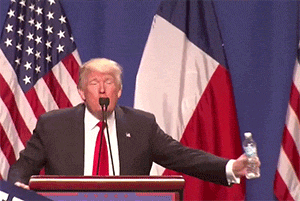Rubio is playing this primary season with a handicap. He doesn’t have to win any contests until Florida on March 15, and when that time comes he may not even have to win there. Rubio simply has to do well enough on Super Tuesday to maintain the appearance of being a bona fide challenger to Donald Trump in the eyes of his GOP backers and wealthy benefactors. To put it somewhat differently, he’s not running to win elections, he’s trying to win the narrative: Rubio can continue to come in second and third for as long as certain people decide that placing in second or third is somehow like coming in first.
But the problem with Rubio’s approach is that maintaining this narrative fiction still requires winning votes. If the idea that second place is the same as first place became a joke after Ted Cruz said he hoped for a third place “victory” in Nevada, it should become a total absurdity after Super Tuesday, when nearly a quarter of the delegates are elected. And, while the polling for Super Tuesday is scant, Rubio does not seem like he’ll do any better than he’s done in any of the previous contests. Ted Cruz, his primary “Not Donald Trump” challenger, may not only win two states, but overtake Rubio for second in several others.
There’s plenty of evidence that Rubio isn’t the frontrunner-in-waiting many want him to be. Rubio’s backers may see the light on Super Tuesday, not March 15.
